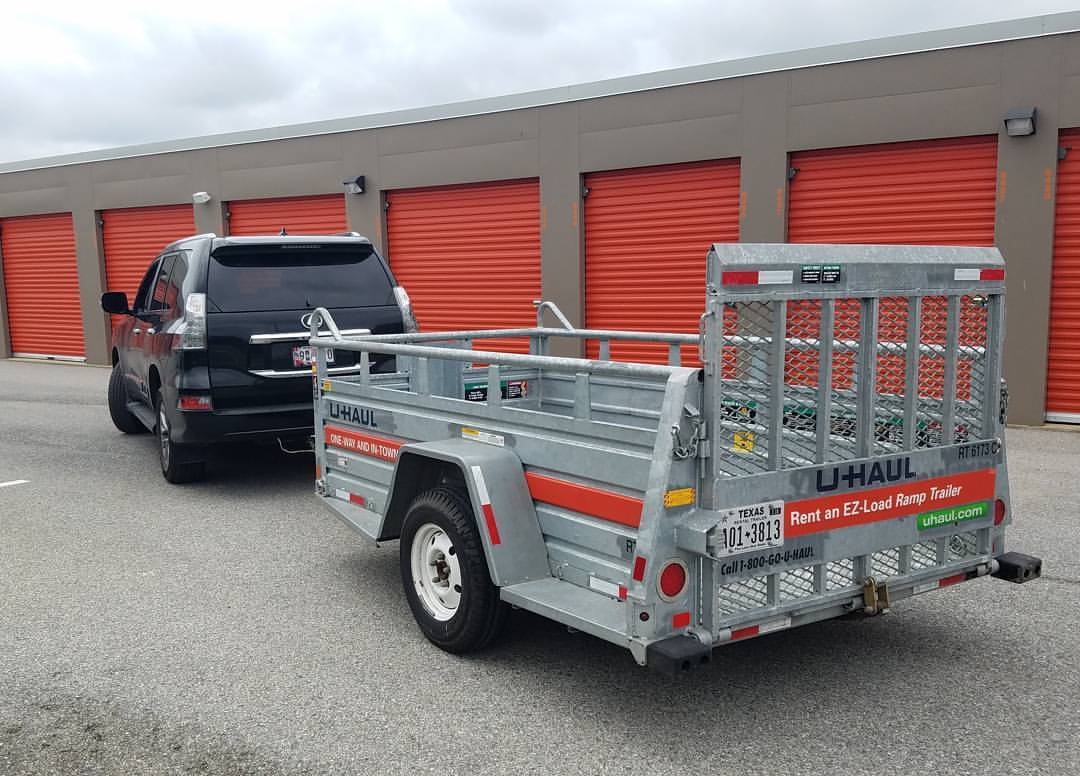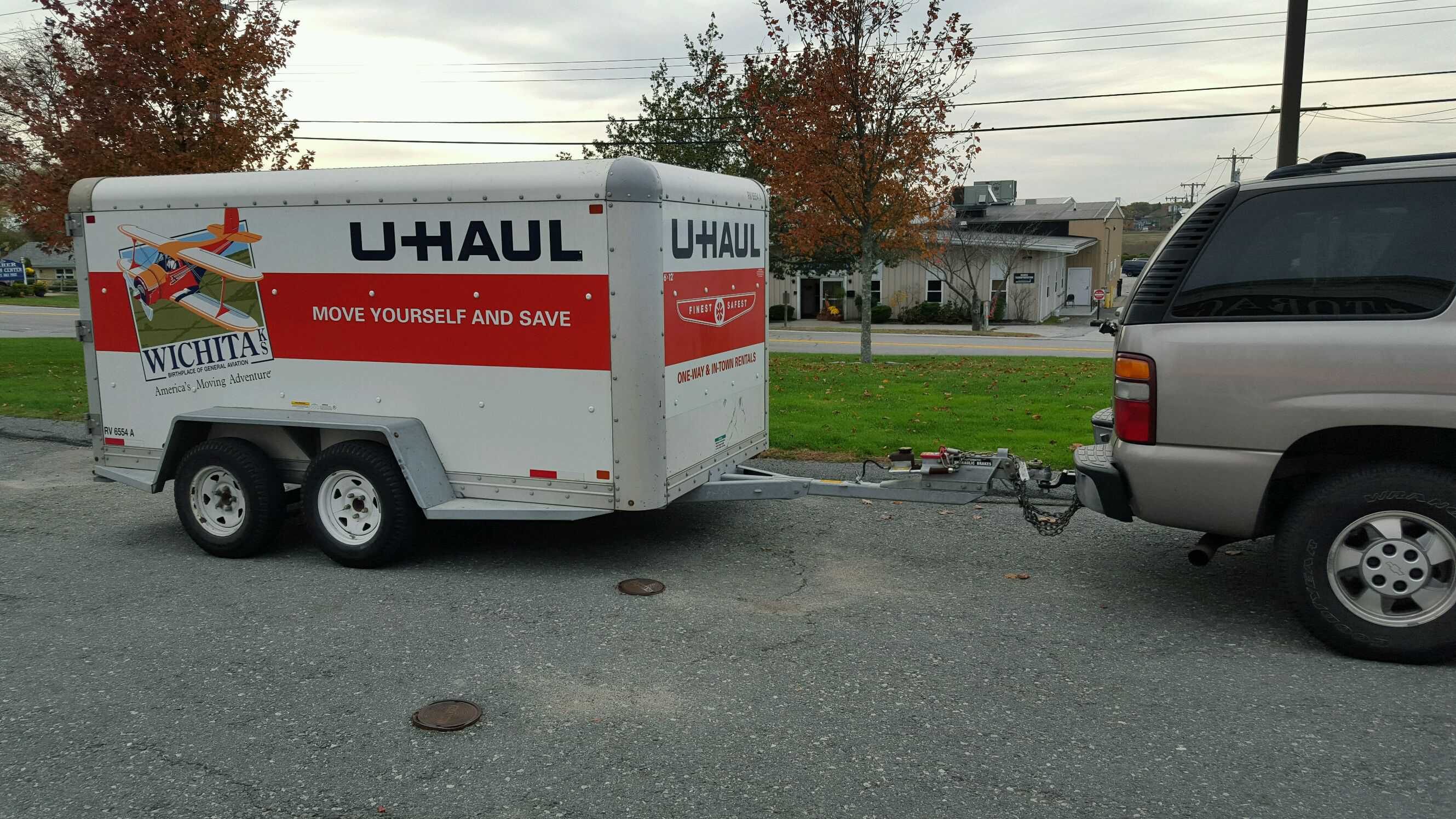Moving can be one of life's most stressful events. From packing and organizing to the logistical nightmare of transporting your belongings, the process can feel overwhelming. Fortunately, U-Haul offers a practical and cost-effective solution: U-Haul trailers. These trailers, readily available at numerous locations across North America, provide a convenient way to move your possessions, whether you're relocating across town or across the country. This comprehensive guide will explore everything you need to know about U-Haul trailers, from choosing the right size to hitching and towing safely.
What are U-Haul Trailers?
U-Haul Trailers: Your Comprehensive Guide to Moving Made Easy
U-Haul trailers are towable containers designed to transport personal belongings, furniture, and other items. They come in various sizes and configurations, catering to different moving needs, from small apartment moves to larger household relocations. The primary advantage of using a U-Haul trailer is its affordability and flexibility. Compared to hiring professional movers or renting a moving truck, U-Haul trailers offer a budget-friendly option, allowing you to control the moving process and timeline. Furthermore, U-Haul's extensive network of locations makes it easy to pick up and drop off trailers at your convenience.
Choosing the Right U-Haul Trailer Size
Selecting the appropriate trailer size is crucial for a smooth and efficient move. Overestimating can lead to unnecessary costs, while underestimating can result in multiple trips or the inability to transport all your belongings. Here's a breakdown of the most common U-Haul trailer sizes and their typical uses:
-
4' x 8' Trailer: Ideal for small moves, such as transporting items from a studio apartment, a dorm room, or a small office. It can typically hold a loveseat, a small mattress set, or several boxes.

5' x 8' Trailer: A slightly larger option suitable for moving the contents of a one-bedroom apartment or a small office. It can accommodate larger furniture pieces and more boxes than the 4' x 8' trailer.
-
5' x 9' Ramp Trailer: Similar in capacity to the 5' x 8' trailer, but with the added benefit of a ramp for easy loading and unloading of heavier items like appliances or furniture.
-
6' x 12' Trailer: This is the largest U-Haul trailer available and is best suited for moving the contents of a two- or three-bedroom house. It can accommodate large furniture sets, appliances, and numerous boxes.

Tips for Choosing the Right Size:

- Inventory Your Belongings: Create a detailed list of everything you plan to move, including the dimensions of larger items.
- Consider the Weight: Keep in mind the weight capacity of the trailer and your vehicle's towing capacity. Overloading can damage the trailer and your vehicle and pose a safety hazard.
- Visualize the Space: Try to visualize how your belongings will fit inside the trailer. You can use online resources or U-Haul's website to estimate the required space.
- Consult with U-Haul Representatives: If you're unsure, consult with U-Haul representatives. They can provide expert advice based on your specific needs.
Hitching and Towing: A Step-by-Step Guide
Proper hitching and towing are essential for safe and successful transportation. U-Haul provides detailed instructions and resources to guide you through the process. Here's a general overview:
- Inspect the Trailer and Hitch: Before hitching, inspect the trailer for any damage, such as worn tires, broken lights, or loose connections. Also, inspect your vehicle's hitch for proper installation and condition.
- Position the Vehicle: Carefully position your vehicle in front of the trailer, ensuring that the hitch ball aligns with the trailer coupler.
- Lower the Trailer Coupler: Lower the trailer coupler onto the hitch ball, making sure it's securely seated.
- Secure the Coupler: Lock the coupler in place using the locking mechanism. Ensure that the locking mechanism is properly engaged and secured.
- Connect the Safety Chains: Cross the safety chains under the trailer tongue and attach them to the safety chain loops on your vehicle's hitch. The chains should be loose enough to allow for turning but tight enough to prevent the trailer tongue from hitting the ground if the coupler fails.
- Connect the Lights: Connect the trailer's wiring harness to your vehicle's trailer light connector. Test the lights to ensure that the brake lights, turn signals, and running lights are functioning properly.
- Raise the Tongue Jack: Raise the tongue jack to its fully retracted position and secure it.
Towing Tips:
- Drive Slowly and Cautiously: Towing a trailer requires extra caution. Drive slowly and avoid sudden stops or turns.
- Allow for Extra Stopping Distance: Towing a trailer increases your vehicle's stopping distance. Allow for extra space between your vehicle and the vehicle in front of you.
- Check Your Mirrors Frequently: Regularly check your mirrors to monitor the trailer's position and ensure that it's tracking properly.
- Be Aware of Your Surroundings: Be aware of low-hanging obstacles, such as bridges and power lines, and avoid areas with tight turns or narrow roads.
- Secure Your Load: Properly secure your belongings inside the trailer to prevent shifting during transit. Use tie-down straps, ropes, or cargo nets to secure items to the trailer walls or floor.
- Periodically Check the Connections: Stop periodically to check the hitch, safety chains, lights, and tire pressure.
Important Considerations and Potential Challenges
While U-Haul trailers offer a convenient moving solution, it's essential to be aware of potential challenges and considerations:
- Vehicle Towing Capacity: Ensure that your vehicle is capable of towing the selected trailer and its contents. Consult your vehicle's owner's manual or a qualified mechanic to determine your vehicle's towing capacity.
- Hitch Requirements: Your vehicle must have a properly installed hitch that is compatible with the U-Haul trailer coupler.
- State Laws and Regulations: Be aware of state laws and regulations regarding trailer towing, such as speed limits and lighting requirements.
- Weather Conditions: Avoid towing in severe weather conditions, such as heavy rain, snow, or high winds.
- Fuel Consumption: Towing a trailer will increase your vehicle's fuel consumption. Plan accordingly and factor in extra fuel costs.
- Availability: Trailer availability can vary depending on location and time of year. Book your trailer in advance, especially during peak moving season.
Addressing Potential Challenges:
- Vehicle Limitations: If your vehicle cannot tow a U-Haul trailer, consider renting a U-Haul truck or hiring professional movers.
- Hitch Installation: If your vehicle does not have a hitch, have one installed by a qualified professional.
- Weather Delays: Monitor weather forecasts and plan your move accordingly. Be prepared to delay your move if necessary.
- Fuel Costs: Budget for increased fuel costs and consider driving more efficiently to conserve fuel.
- Trailer Availability: Book your trailer well in advance to ensure availability.
U-Haul Trailer Price Table
| Trailer Size | Typical Use | Estimated Daily Rate (Local Move) | Estimated Daily Rate (One-Way) |
|---|---|---|---|
| 4' x 8' | Small apartment, dorm room, small office | $14.95 + mileage | Varies by distance |
| 5' x 8' | One-bedroom apartment, small office | $19.95 + mileage | Varies by distance |
| 5' x 9' Ramp | One-bedroom apartment, appliances, furniture | $24.95 + mileage | Varies by distance |
| 6' x 12' | Two- or three-bedroom house | $29.95 + mileage | Varies by distance |
Note: These prices are estimates and may vary depending on location, availability, and time of year. Mileage charges also apply to local moves. Contact U-Haul directly for the most accurate pricing information.
Frequently Asked Questions (FAQ)
-
Q: What is the maximum speed limit when towing a U-Haul trailer?
- A: The maximum speed limit varies by state. It is important to check the state laws and regulations for the specific areas you will be driving through. Generally, it's recommended to drive no faster than 55 mph when towing a trailer.
-
Q: Do I need a special driver's license to tow a U-Haul trailer?
- A: In most cases, a standard driver's license is sufficient to tow a U-Haul trailer. However, some states may require a special endorsement for larger trailers. Check with your local Department of Motor Vehicles for specific requirements.
-
Q: What is the weight capacity of a U-Haul trailer?
- A: The weight capacity varies depending on the trailer size. The 4' x 8' trailer has a maximum load capacity of 1,610 lbs, the 5' x 8' trailer has a capacity of 1,800 lbs, the 5' x 9' ramp trailer has a capacity of 1,660 lbs, and the 6' x 12' trailer has a capacity of 2,480 lbs. Always check the trailer's specifications for the exact weight capacity.
-
Q: What happens if I damage the U-Haul trailer?
- A: U-Haul offers optional SafeTow coverage that protects you from financial responsibility for damages to the trailer. If you decline SafeTow and damage the trailer, you will be responsible for the repair costs.
-
Q: Can I reserve a U-Haul trailer online?
- A: Yes, you can reserve a U-Haul trailer online through the U-Haul website. Online reservations are recommended, especially during peak moving season.
-
Q: What do I need to bring when I pick up my U-Haul trailer?
- A: You will need a valid driver's license, a credit card or other form of payment, and the reservation confirmation (if you made a reservation online).
Conclusion
U-Haul trailers offer a practical, affordable, and flexible solution for moving your belongings. By carefully selecting the right trailer size, following proper hitching and towing procedures, and being aware of potential challenges, you can ensure a safe and successful move. Whether you're moving across town or across the country, U-Haul trailers can help make the process easier and more manageable. Remember to prioritize safety, plan ahead, and consult with U-Haul representatives if you have any questions or concerns. With proper preparation, your U-Haul trailer experience can be a positive and stress-free one.
0 comments